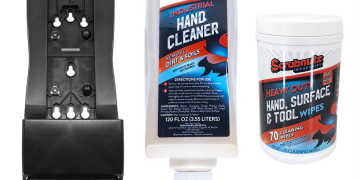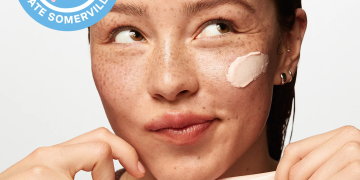Acne scars and dark spots are common skin concerns that often linger long after blemishes have healed. These marks can affect self-confidence and make skin appear uneven, even when it’s otherwise healthy. Thankfully, advancements in skincare and dermatological treatments have made it possible to significantly reduce the appearance of scars and spots. This guide provides actionable steps and proven methods to help you achieve clearer, more radiant skin.
Understanding Acne Scars and Spots
Before addressing the treatment of acne scars and spots, it is essential to differentiate between the two:
1. Acne Scars
- Atrophic scars: These appear as depressions in the skin, such as ice pick scars, boxcar scars, and rolling scars. They occur due to a loss of collagen during the healing process.
- Hypertrophic scars: These are raised scars caused by an overproduction of collagen, often seen in areas like the chest and back.
2. Post-Inflammatory Hyperpigmentation (PIH)
- PIH manifests as dark or discolored spots that are left behind after a pimple heals. Unlike scars, these marks are not permanent and fade over time, though they may take months without intervention.
Identifying whether you’re dealing with scars or hyperpigmentation is crucial in selecting the appropriate treatment.
Building a Skincare Routine for Clearer Skin
A consistent skincare routine can help fade scars and spots over time while preventing new ones from forming. Here are the key steps:
1. Gentle Cleansing
Start with a sulfate-free cleanser that removes dirt and oil without stripping the skin. Look for calming ingredients like:
- Aloe vera
- Green tea extract
- Chamomile
Wash your face twice a day, especially after sweating, to prevent clogged pores and irritation.
2. Exfoliation
Exfoliation promotes cell turnover, helping to fade scars and spots faster. There are two main types:
- Chemical exfoliants: Alpha hydroxy acids (AHAs) like glycolic acid and lactic acid dissolve dead skin cells, while beta hydroxy acids (BHAs) like salicylic acid penetrate pores to clear debris.
- Enzymatic exfoliants: Derived from fruits like papaya and pineapple, these are gentler options for sensitive skin.
Limit exfoliation to 2-3 times per week to avoid over-irritating your skin.
3. Targeted Treatments
Incorporate serums and treatments formulated to address hyperpigmentation and scarring:
- Vitamin C: Brightens skin tone and reduces dark spots.
- Retinoids: Boost collagen production and accelerate skin renewal.
- Niacinamide: Reduces inflammation and regulates melanin production.
- Azelaic Acid: An effective ingredient for reducing redness and discoloration.
4. Hydration and Moisturization
Well-hydrated skin heals more effectively. Use moisturizers with:
- Hyaluronic acid for hydration.
- Ceramides to strengthen the skin barrier.
- Squalane for lightweight moisture.
5. Sun Protection
Sunscreen is non-negotiable when treating acne scars and spots. UV exposure worsens pigmentation and slows the healing process. Opt for a broad-spectrum sunscreen with SPF 30 or higher, and reapply every two hours during sun exposure.
Professional Treatments for Faster Results
If at-home treatments aren’t enough, professional dermatological procedures can significantly improve the appearance of scars and spots:
1. Chemical Peels
Chemical peels use a controlled application of acids to exfoliate the outer layers of skin, revealing smoother, more even-toned skin underneath. Depending on the depth of the peel, multiple sessions may be required.
2. Microneedling
Microneedling involves using fine needles to create tiny injuries in the skin, stimulating collagen production and improving the appearance of atrophic scars. Adding radiofrequency to microneedling can enhance results.
3. Laser Therapy
Lasers target specific skin concerns:
- Fractional lasers focus on scarred areas, promoting collagen production.
- Intense pulsed light (IPL) treats discoloration by breaking up melanin clusters.
4. Dermal Fillers
Fillers are particularly effective for deep, rolling scars. They plump the skin, creating a smoother appearance. While temporary, fillers can provide noticeable improvements.
5. Subcision
This technique involves using a small needle to break up fibrous tissue beneath atrophic scars, allowing the skin to lift and smooth out naturally.
Lifestyle and Diet for Skin Health
The appearance of your skin is influenced not only by skincare products but also by your overall lifestyle. Here are tips to support your skin from the inside out:
1. Hydration
Drink plenty of water to maintain skin elasticity and support cell turnover.
2. Diet
Consume foods rich in:
- Antioxidants: Found in berries, spinach, and green tea, they combat free radical damage.
- Omega-3 fatty acids: Found in salmon, walnuts, and flaxseeds, these reduce inflammation.
- Vitamin C: Boosts collagen production and aids in skin repair.
Avoid processed foods and excessive sugar, which can contribute to inflammation and breakouts.
3. Stress Management
Chronic stress increases cortisol levels, which can exacerbate acne and delay healing. Practice mindfulness, yoga, or regular exercise to keep stress in check.
4. Adequate Sleep
Skin repairs itself during sleep, so aim for 7-9 hours of quality rest each night.
Tips for Preventing Future Scars and Spots
Prevention is key when it comes to acne scars and spots. Adopt these habits to minimize their occurrence:
- Avoid Picking or Squeezing Pimples: This common habit forces bacteria deeper into the skin, increasing the risk of scarring.
- Treat Acne Early: Addressing acne promptly with over-the-counter or prescription treatments can prevent severe breakouts that lead to scars.
- Use Non-Comedogenic Products: Choose skincare and makeup labeled as non-comedogenic to avoid clogging pores.
- Stick to a Routine: Consistency is essential for maintaining healthy skin and preventing future breakouts.
The Importance of Patience and Persistence
Fading acne scars and spots is a gradual process. Results often take weeks to months, depending on the severity of the marks and the treatments used. Staying consistent with your routine and seeking professional advice when needed will help you achieve clearer, more radiant skin over time.










